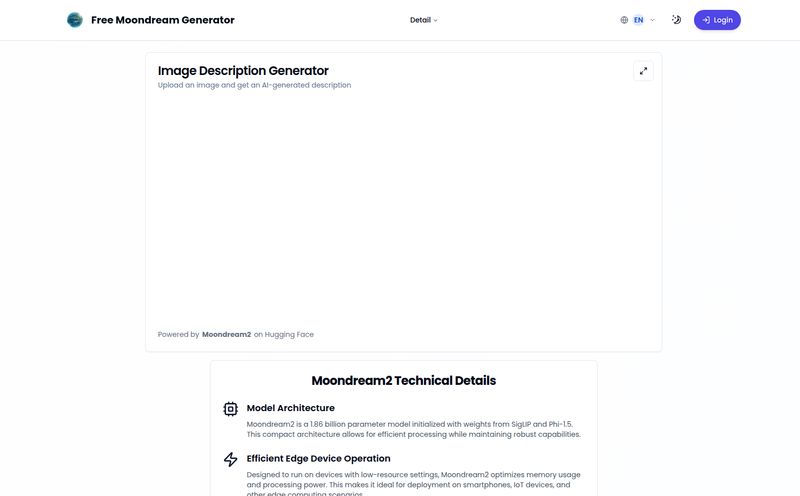We've all been there. It's 4:57 PM on a Friday, you're trying to push that last feature, and you're staring at a mountain of code that needs reviewing, testing, and a coherent pull request description. The cycle is endless: write code, write tests, beg for a review, repeat. It’s the necessary grunt work of software development, but man, can it be a drag on productivity and, frankly, my will to live.
For years, we've had tools to help us write code faster, like GitHub Copilot. But what about making the code we write better? What about the whole integrity part of the process? That's the space a very interesting tool called Qodo (you might remember it as Codium) is trying to fill. I’ve been kicking the tires on it for a while now, and I’m ready to share my thoughts. This isn't just another spec sheet breakdown; this is a real-world look from someone who lives and breathes this stuff.
So, What Exactly is Qodo?
Qodo bills itself as an “agentic code integrity platform.” Okay, let’s translate that from marketing-speak. Think of it less like a simple autocomplete and more like an AI-powered junior developer who’s always on, never needs coffee, and is obsessed with quality. It’s designed to be a partner throughout your entire workflow, from the moment you write a line of code to the second it gets merged.
It integrates directly into your favorite IDE—they have plugins for VSCode and the whole JetBrains family—and hooks into your Git provider, like GitHub or GitLab. This tight integration is what gives it its power. It’s not just guessing what you want; it has the context of your entire codebase to make intelligent suggestions. It’s this focus on integrity and testing that really sets it apart from the pack.
Breaking Down The Core Features
Qodo isn’t just one thing; it’s a suite of tools. They've broken it down into a few key components that tackle different parts of the development headache.
Qodo Command: Your Personal Code Whisperer
Ever inherited a legacy codebase that felt like reading ancient hieroglyphics? Qodo Command is for you. It's an interactive chat inside your IDE where you can ask questions about your code. “Explain this function to me,” “How do I refactor this to be more efficient?,” or “Find any potential bugs here.” It provides answers with the full context of your project, which is a massive time-saver compared to pasting snippets into a generic chatbot and hoping for the best.
Qodo Gen: More Than Just a Code Generator
This is the feature that gets a lot of attention. Yes, Qodo Gen can help you write new code. But its real superpower, in my opinion, is generating tests. Meaningful, relevant tests. It analyzes your code and generates a test suite designed to improve your code coverage and catch edge cases. For someone like me who believes good tests are the bedrock of good software, this is huge. It turns a tedious chore into a one-click operation. It’s not perfect, mind you—we’ll get to that—but it’s a phenomenal starting point.

Visit Qodo (formerly Codium)
Qodo Merge: Making Pull Requests Less Painful
I swear, I've spent entire afternoons of my life just writing PR descriptions and trying to summarize my changes. Qodo Merge automates a lot of this. When you're ready to merge, it can analyze your changes and automatically generate a detailed description for your pull request. It even goes a step further by reviewing the PR itself, suggesting improvements or flagging potential issues before a human reviewer even sees it. This has the potential to dramatically speed up review cycles. Anything that reduces the back-and-forth on a pull request is a win in my book.
Who Is This Actually For?
Qodo has pretty clearly defined its audience with its pricing structure. It's not a one-size-fits-all tool.
- The Lone Wolf Developer: If you're a solo dev, a freelancer, or just working on personal projects, the free Developer plan is incredibly generous. You get enough monthly usage to genuinely integrate it into your workflow and see if it works for you.
- The Growing Team: The Teams plan is built for small to medium-sized squads. This is where the collaborative features, like the enhanced PR reviews, really start to shine. It helps standardize quality and gets everyone on the same page.
- The Enterprise Behemoth: For large organizations with serious security and compliance needs, the Enterprise plan offers things like on-premise deployments and access to the most powerful AI models like GPT-4 and Claude 3 Opus. This is for when code integrity isn't just a best practice, its a business-critical requirement.
The Big Question: What's the Price Tag?
Alright, let's talk money. A tool can have all the bells and whistles in the world, but if the price is wrong, it's a non-starter. Qodo’s pricing is tiered, and I’ve got to say, it feels pretty fair.
| Plan | Price | Key Features |
|---|---|---|
| Developer | $0 / month | 250 messages/tool uses per month. Great for individuals. |
| Teams | $30/user/month (Annually) $38/user/month (Monthly) | 5,000 messages, team features, centralized billing. SSO is an extra cost, which is a bit of a bummer. |
| Enterprise | $45/user/month (Annual only) | On-premise deployment, top-tier AI models, advanced security & analytics. |
My take? The free plan is more than just a trial; it's legitimately useful. The Teams plan is priced competitively against other developer productivity tools. The only real sticking point for me is making SSO an add-on cost for the Teams plan. In 2024, that should really be standard for any team-focused SaaS product.
My Honest Take: The Good, The Bad, and The AI
After using Qodo, I have some strong opinions. It’s impressive, but it's not magic. Let's get real.
The good stuff is really good. The productivity boost is palpable. It shaves off minutes here and there—writing tests, explaining code, drafting PRs—and those minutes add up to hours very, very quickly. It’s like a good sous-chef in the kitchen; it handles the prep work so you can focus on the actual art of cooking, or in this case, coding. The focus on code coverage and quality is a massive plus, pushing you towards better habits.
Now for the caveats. Let's be real, no AI is a silver bullet… yet. The tests it generates are a fantastic starting point, but they still require a human eye. You can't just blindly trust them and move on. You need to review them, understand why it wrote them, and sometimes tweak them. It’s an assistant, not a replacement. Anyone who tells you otherwise is selling you snake oil. Also, while the free tier is great, you can burn through those 250 credits pretty fast if you get reliant on it, which is obviously part of their business model.
Qodo vs. The Competition
The obvious comparison is GitHub Copilot. I use Copilot daily, and I see them as two different tools for two different jobs. Copilot is an amazing pair programmer; it excels at autocomplete and predicting the next few lines you're going to write. It’s all about creation speed.
Qodo, on the other hand, is more like a quality assurance engineer. It's focused on the integrity of the code you've already written. While Copilot is great at helping you write code faster, Qodo is focused on making sure the code you write is robust, well-tested, and easy to maintain. They can, and probably should, coexist in a professional developer's toolbelt.
Frequently Asked Questions about Qodo
Does Qodo write perfect code?
No, and it's important to understand that. It writes very good, context-aware code and tests, but it's an AI assistant. You should always review its output. Think of it as a very skilled junior dev; it needs senior oversight.
What programming languages does Qodo support?
Qodo supports a wide range of popular languages, including Python, JavaScript, TypeScript, Java, Go, and more. Their documentation on the website has a full, up-to-date list.
How does the credit system work on the free plan?
You get 250 credits (or "messages & tool use") per month. Each major action, like generating a test suite or explaining a block of code, consumes some of these credits. The usage resets monthly.
Is my code secure with Qodo?
Qodo takes security seriously. According to their security page, they have SOC 2 Type II certification and don't train their models on user code without explicit permission. For maximum security, the Enterprise plan offers on-premise deployments, meaning your code never leaves your own infrastructure.
Can I use Qodo with GitHub Copilot?
Absolutely. They serve different primary functions. You can use Copilot for real-time code completion and Qodo for generating tests, reviewing changes, and understanding the overall health of your code.
Is the Teams plan worth the cost?
In my experience, if you have a team of three or more developers, the time saved on code reviews and test writing can easily justify the cost. Calculate how much an hour of your team's time is worth; you'll likely find the ROI pretty quickly.
The Final Verdict
So, is Qodo the real deal? Yeah, I think it is. It's a thoughtful, well-executed platform that tackles a genuine pain point for developers. It's not about replacing programmers; it's about augmenting them, freeing them from the tedious parts of the job so they can focus on solving real problems.
It’s not perfect, and the AI revolution won't happen overnight, but Qodo is a significant step in the right direction. It makes the path of least resistance the path of best practice, and that's a powerful thing. If you're a developer feeling bogged down by the process surrounding the code, I'd strongly suggest giving the free plan a spin. What have you got to lose? Except maybe a few tedious hours writing boilerplate tests.



